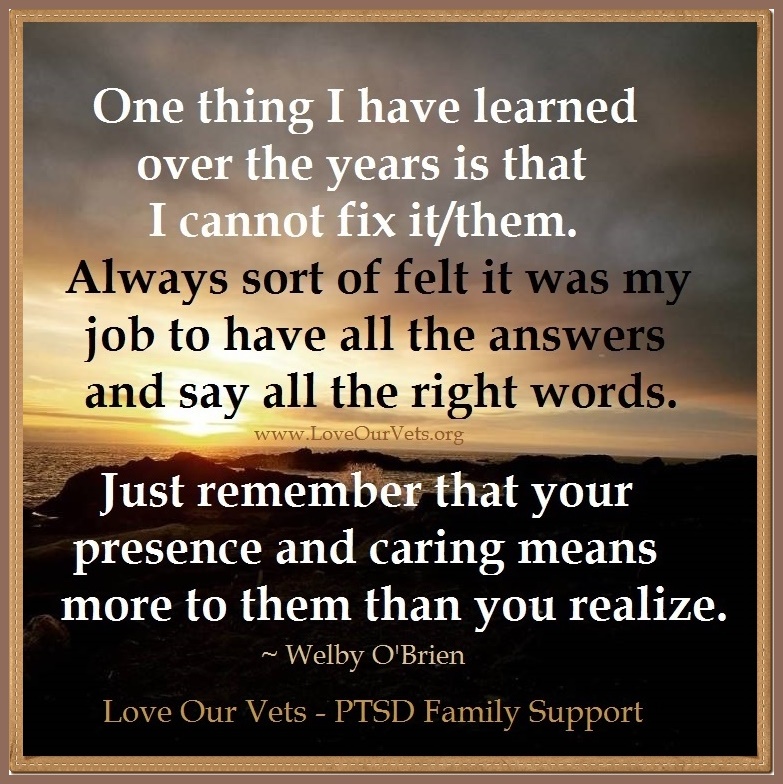How often do you hear your vet spewing laments like “I’m all screwed up!” or more likely “I’m just all f-d up!” Self-abasing comments of worthlessness and hopelessness. Because of the horrific things they saw and did, many of our beloved warriors also feel they are “beyond redemption.” Whether with God or people. But most importantly – with themselves. Worthless. Scum. Ruined. Beyond repair. Beyond help. Beyond hope. And most tragically, beyond love.
We know that is far from the truth! How do we as those who love them and stand by them respond to these belittling and berating outpourings? We want to lift them up, but sometimes it seems that instead we find ourselves dragged down by the weight of their negativity. Perhaps we feel tempted to just ignore them because we feel so inadequate. Helpless. We know we cannot “fix” them. What can I do? What do I say?
Is it possible to love them, encourage them and build their self-esteem while at the same time staying centered and stable ourselves?
One thing I never want to do is become calloused. Or numb. Something about a tender heart and compassion toward my vet keeps me alive. It is good for me to stay vulnerable enough to sense his pain, while at the same time knowing where to draw the line between empathetic caring and taking in (as part of me) his pain, bitterness and despondency. As caregivers and supporters of our loved ones with PTSD, we have the privilege of supporting them but not at the expense of our own well-being.
So we can respond lovingly without letting ourselves be sucked into the black hole. At the same time, we also want to not feed it.
What most of us have found helpful is to respond in love
and affirmation, without fueling the incendiary fire
of doom and self-erosion.
A gentle hug without words. Or perhaps a kiss on the cheek. Maybe a simple, “I know you are having a hard time, and I love you.” It also never hurts to express appreciation for their service and sacrifices, which will continue until the day they die. You know best what reaches the heart of your vet.
And as I encourage us to do in LOVE OUR VETS: Restoring Hope for Families of Veterans with PTSD, we can also encourage them to seek help and also connect with other vets. And we can always pray. For them and for ourselves.
Then we have to let go. This is their woundedness. Their journey. Easier said than done. The more we who love our vets stay grounded and mindful of our feelings and needs, and connect with others who understand, the more strength and stability we will have not only for us but for those we love most.

.





